Search Images
Browse Content (p. 813)
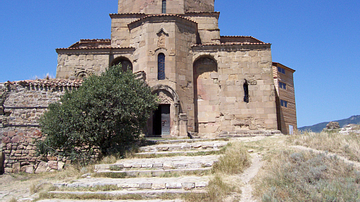
Image
Jvari Monastery
Jvari Monastery (Monastery of the Cross), Georgia
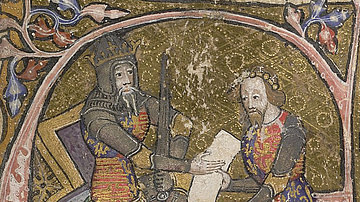
Image
Edward III & Edward the Black Prince
A c. 1390 CE manuscript illustration showing Edward III of England presenting his son Edward the Black Prince with the title of Prince of Aquitaine, an act made in 1362 CE. (British Library, London)
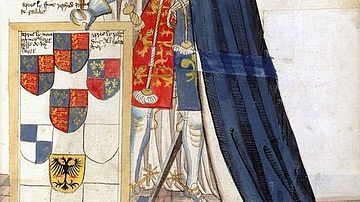
Image
Edward the Black Prince as a Knight of the Garter
A mid-15th century CE illustration of Edward the Black Prince (1330-1376 CE) dressed as a knight of the Order of the Garter. From the Garter Book by William Bruge. (British Library, London)
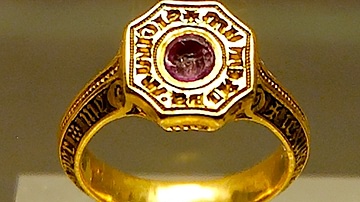
Image
Signet Ring of Edward the Black Prince
The gold and ruby signet ring of Edward the Black Prince (1330-1376).
Louvre Museum, Paris.
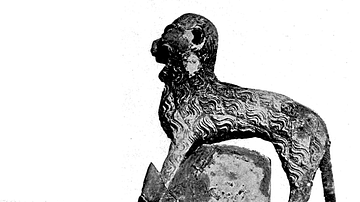
Image
Helmet & Shield of Edward the Black Prince
The tournament helmet and shield of Edward the Black Prince (1330-1376 CE) now held in Canterbury Cathedral.

Image
Persian Hero Garshasp
Garshasp kills the dragon, illustration from the Shahnameh, Sultanate of Delhi, c. 1450.
Rietberg Museum, Zürich.
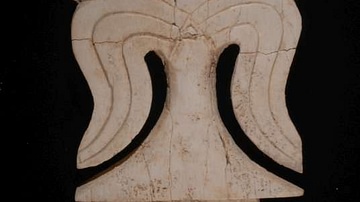
Image
Sacred Tree Furniture Inlay
This object is an ivory furniture inlay depicting a sacred tree. It was excavated from Samaria and dates to the Iron Age II (9th–8th century BCE). It has a width of 9.9 cm and a diameter of 6.5 cm. (The Israel Museum, Jerusalem) ©The Israel...

Image
Battle of Crecy, 1346 CE
An illustration of the Battle of Crécy on 26 August 1346 CE between the armies of Edward III of England (r. 1327-1377 CE) and Philip VI of France (r. 1328-1350 CE). Edward was victorious thanks to his troops' experience, discipline and use...
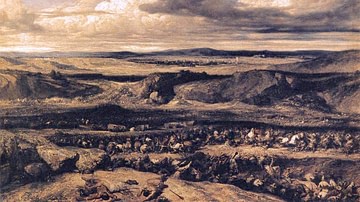
Image
The Defeat of the Cimbri
Painting by Alexandre-Gabriel Decamps (1833 CE).
Louvre, Paris.
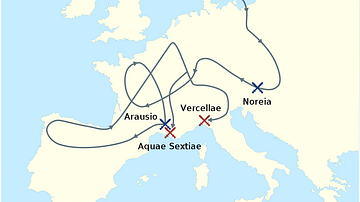
Image
Migration of the Cimbri
Map showing the route taken by the Cimbri and Teutones (2nd century BCE).